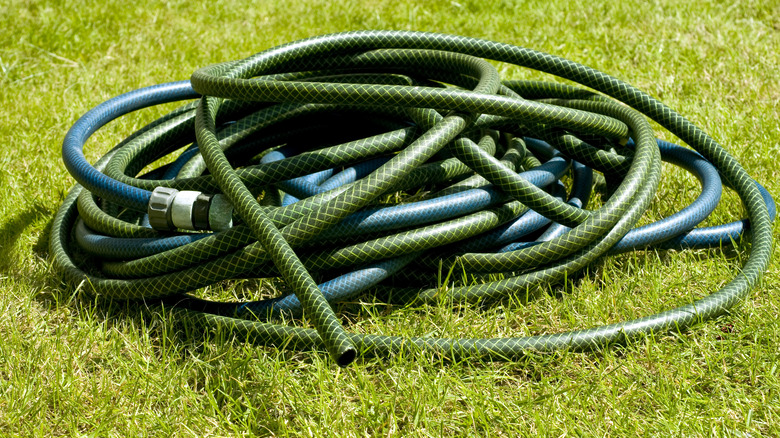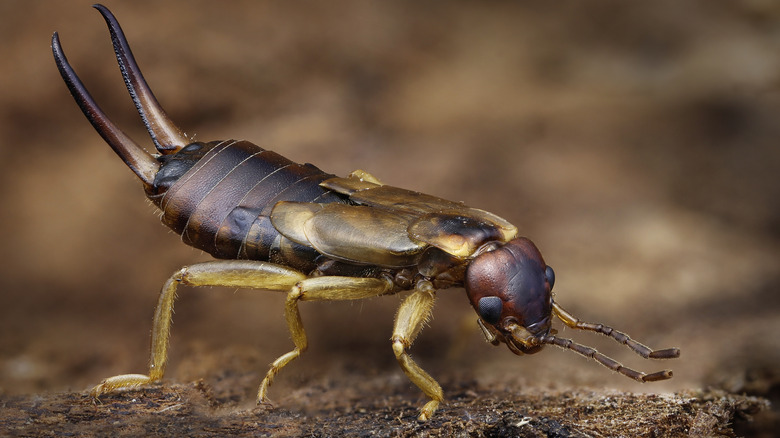Can Your Old Garden Hose Really Double As The Perfect Backyard Pest Trap?
Whether you grow flowers for show or veggies to eat, chances are you've had a run-in with unwanted teeny-tiny invaders. The worst garden pests you'll want to banish from your yard cause the most damage to your plants (although the ick factor may be a consideration, too). The dreaded earwig is on that unwanted pest list, because the creepy-crawly insects destroy foliage and are undeniably off-putting. Sure, they aren't all bad: The insects prey on aphids, which can be beneficial in some gardens, and they are great mothers. The babies are even kind of cute — until you learn they thank mom for her dedication by eating her. Practically speaking though, in large numbers, earwigs will tear through your leafy greens, ravaging plants like marigolds, potatoes, lettuce, celery, beans, squash, and dahlias.
You may not be able to rid yourself of earwigs completely, but according to some anecdotal accounts, a garden hose can do double duty as an earwig trap. This makes some sense: Earwigs are known for being attracted to moisture, which is why you may sometimes find them in places like your shower curtain (more nightmare fuel). By placing lengths of (presumably wet) old hose in between your plants at night, you may be able to lure the pests inside, then simply shake the bugs out into buckets of soapy water the following morning. If you have an old hose lying around, it's worth trying; however, there are more tried-and-true methods of ridding your garden of earwigs.
Other ways to trap earwigs in your garden
On those hot summer days, beer is often on the menu — for pests. Earwigs are attracted to the yeast in beer, which smells similar to decaying (i.e., fermenting) vegetation. If you fill a small container with beer and leave it in the garden, earwigs will crawl in and drown. Repeat the process regularly, emptying the trap each morning and refilling. You can bury an open can of beer in the yard, which does look better, but this is more work, and you still have to change it regularly. One of the advantages of this eco-friendly strategy is that it also works on slugs. If you don't have beer, a mixture of olive oil and soy sauce works just as well.
Like most other insects, earwigs can also be killed by sprinkling boric acid or diatomaceous earth around your garden. If you prefer a more hands-on approach, spraying earwigs with a DIY rubbing alcohol solution will stop them in their tracks. Be warned: you may hurt your plants in the process, so be careful.
Alternatively, you may want to think twice about killing earwigs. They are an important part of the ecosystem, and they excel at pest control, preying on the eggs and larvae of aphids, mites, and fleas. While the damage earwigs do by eating leaves isn't good for your plants, aphids are worse: they can spread disease and even kill young plants.

